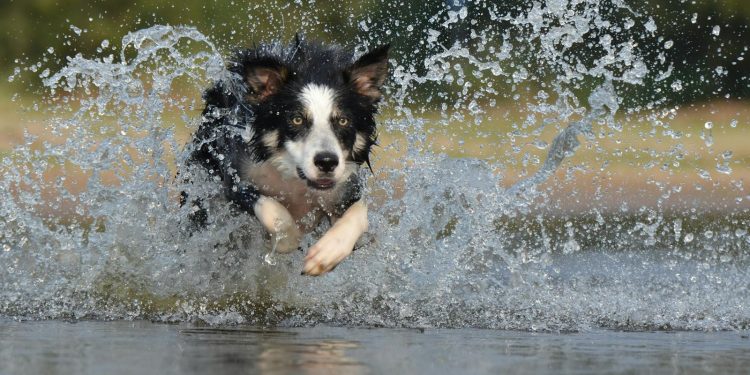For pet owners who love participating in sports and activities with their furry companions, understanding the role of nutrition in pet sports performance is crucial. Just like human athletes, pets that are actively involved in sports need a carefully balanced diet to support their energy levels, stamina, muscle development, and overall health. Whether your dog is an agility superstar, a flyball champion, or a canicross enthusiast, the right nutrition can make a huge difference in their performance and recovery. Here, we dive into how nutrition impacts a pet’s sports capabilities, what types of nutrients are essential, and how to develop a diet plan that will help your pet perform at their best.
The Importance of a Balanced Diet for Active Pets
A balanced diet is the foundation of good health and athletic performance for pets. Active pets burn significantly more calories than pets who lead a sedentary lifestyle. As a result, their diets need to account for the additional energy requirements, ensuring they have enough fuel to sustain their performance without causing weight gain or nutritional deficiencies. A proper balance of proteins, fats, carbohydrates, vitamins, and minerals is key to supporting energy levels, muscle growth, and overall well-being.
Pets that do not receive adequate nutrition are more likely to experience fatigue, muscle weakness, joint issues, and a higher risk of injuries. Just as a marathon runner would not perform well on a poor diet, an active dog engaged in agility or other sports requires the correct nutritional support to keep up with their activities. Tailoring your pet’s diet to meet their specific needs is one of the best ways to ensure their success in any physical activity.
Key Nutrients for Pet Athletes
For pets involved in sports, certain nutrients are more critical than others. Understanding what makes a well-rounded diet is crucial to optimizing performance. Here are some key nutrients that play an important role in your pet’s athletic capabilities:
1. Proteins: The Building Blocks
Protein is vital for maintaining muscle mass and repairing tissues after strenuous activities. Active pets use more muscle tissue than their more sedentary counterparts, which means they need a higher protein intake to repair muscles and prevent muscle wasting. The amino acids found in protein are essential for building and maintaining healthy muscle fibers, as well as supporting strong ligaments and tendons.
High-quality animal proteins such as chicken, beef, turkey, fish, or eggs are ideal sources for active pets. The protein content in an active dog’s diet should be higher than that of an inactive dog to meet the increased demand for muscle repair and energy. Additionally, protein is crucial for healthy bones and the production of enzymes and hormones, all of which contribute to overall performance and well-being.
2. Fats: The Primary Energy Source
Fats are the main source of energy for pets engaged in sports. Unlike humans, who often rely on carbohydrates for energy, dogs derive most of their energy from fat. Healthy fats provide a concentrated source of calories that are easy to convert into energy, which is particularly important during extended activities like running or endurance sports.
Omega-3 and Omega-6 fatty acids, found in fish oil, flaxseed oil, and chicken fat, are also beneficial for reducing inflammation and promoting healthy joints, which is essential for active pets. These fatty acids also contribute to a shiny coat and healthy skin, further promoting overall health. The amount of fat in your dog’s diet should be adjusted based on their level of activity; dogs that engage in intense, high-energy sports will require more fat to keep up with their caloric needs.
3. Carbohydrates: Quick Energy and Fiber
While fats are the main source of energy, carbohydrates still play a crucial role in an active pet’s diet. Carbohydrates provide quick energy that helps fuel short bursts of activity, such as agility competitions or flyball runs. Carbohydrates also provide dietary fiber, which supports digestive health and helps maintain steady blood sugar levels.
Sources of carbohydrates include whole grains, such as brown rice and oats, as well as vegetables like sweet potatoes and peas. It’s important to choose complex carbohydrates that provide sustained energy and avoid foods high in refined sugars, which can lead to spikes and crashes in energy levels.
4. Vitamins and Minerals: Supporting Overall Health
Vitamins and minerals are necessary for maintaining a pet’s overall health, immunity, and metabolic processes. Calcium and phosphorus are crucial for maintaining strong bones and teeth, while vitamins like B12, C, and E help support energy metabolism, the immune system, and reduce oxidative stress.
Iron is also an important mineral, especially for active pets, as it supports red blood cell production, which is essential for delivering oxygen to muscles during exercise. Including a mix of high-quality animal products, leafy greens, and supplements as needed can help ensure that your pet is getting all the necessary vitamins and minerals.
5. Water: The Forgotten Essential
Water is often overlooked but is one of the most critical aspects of keeping a pet healthy, especially during sports and exercise. Active pets can quickly become dehydrated due to panting, which is their primary method of cooling down. Dehydration can lead to decreased performance, muscle cramps, overheating, and even heat stroke.
Always ensure that your pet has access to fresh, clean water, both before and after exercise. During long training sessions or competitions, take frequent water breaks to help your pet stay hydrated. Adding a bit of low-sodium broth to your pet’s water can make it more enticing if they are hesitant to drink.
Creating a Diet Plan for Your Active Pet
To ensure that your pet gets the right nutrition to support their activities, you should create a diet plan that is specifically tailored to their needs. Here are some steps to help you get started:
1. Assess Your Pet’s Activity Level
First, determine your pet’s activity level. Dogs involved in moderate activities, such as daily jogging, will have different caloric and nutritional needs compared to those involved in highly strenuous activities like agility competitions or endurance sports. Knowing your dog’s activity level will help you tailor their diet to match their caloric and nutritional demands.
2. Choose High-Quality Ingredients
Opt for high-quality pet food that lists whole proteins, like chicken or beef, as the first ingredient. If you prefer a homemade diet, consult with your veterinarian or a pet nutritionist to ensure that your pet’s meals are properly balanced and include all necessary nutrients.
3. Adjust Portion Sizes
Portion size plays an important role in managing your pet’s energy levels and overall health. Active pets need more calories to sustain their energy expenditure, but it’s important to adjust portions gradually to avoid weight gain. Monitor your pet’s weight and body condition regularly, and adjust their portion sizes as needed to ensure they remain lean and fit.
4. Consider Supplements
In some cases, supplements can be helpful for active pets. Joint supplements, like glucosamine and chondroitin, can support joint health and help prevent injuries in high-impact sports. Omega-3 supplements are also useful for reducing inflammation and promoting recovery. However, always consult your veterinarian before adding supplements to your pet’s diet.
Pre- and Post-Exercise Nutrition
Timing your pet’s meals around their exercise schedule can also help improve their performance and recovery. Feeding your pet a light meal a few hours before exercise can provide them with the energy they need without causing digestive discomfort. Avoid feeding a large meal right before exercise, as this can lead to gastrointestinal upset or even bloat, particularly in deep-chested breeds.
After exercise, provide a small snack that contains protein to help with muscle recovery. Hydration is equally important—ensure your pet drinks plenty of water after exercise to replenish what was lost during their activity.
Signs of Nutritional Deficiency
It’s important to monitor your pet for any signs of nutritional deficiency, which can negatively impact their sports performance and overall health. Signs include:
- Lethargy: A lack of energy may indicate that your pet is not getting enough calories or essential nutrients.
- Weight Loss or Gain: Unintended weight loss or gain can indicate an imbalance in calorie intake versus energy expenditure.
- Poor Coat Condition: A dull or thinning coat can be a sign of inadequate protein or fatty acid intake.
- Muscle Weakness: Difficulty recovering after exercise or muscle weakness can suggest insufficient protein or mineral intake.
If you notice any of these symptoms, consult your veterinarian to reassess your pet’s diet and make necessary adjustments.









Discussion about this post